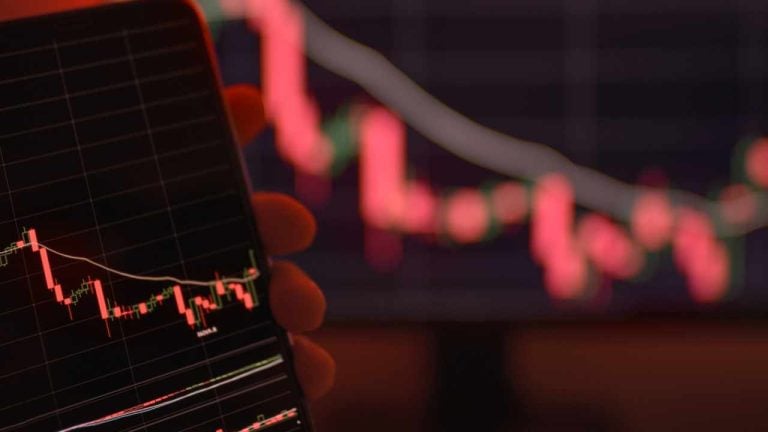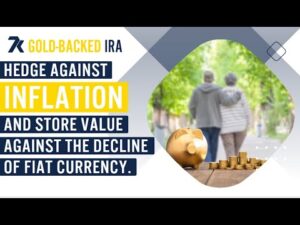
Peter Schiff Dismisses Spot Bitcoin ETFs
Economist and gold bug Peter Schiff has expressed his belief that the approval of spot bitcoin exchange-traded funds (ETFs) by the U.S. Securities and Exchange Commission (SEC) will have little impact. According to Schiff, there is no real need for a bitcoin ETF since individuals can easily buy and store bitcoin themselves. He anticipates that there will be minimal investor demand and speculators who purchased bitcoin based on the news will likely sell once the ETFs are launched.
Schiff Throws Cold Water on Spot Bitcoin ETF
Peter Schiff, the chief economist at Euro Pacific Asset Management and founder of Schiff Gold, recently shared his thoughts on the potential approval of spot bitcoin ETFs by the SEC on social media platform X. He cautioned that the promise of a U.S.-listed spot bitcoin ETF has been driving up the price of bitcoin and speculative demand for years. However, he believes that once the ETFs are launched and the anticipated institutional and new investor demand fails to materialize, the market could experience a downturn.
Schiff further stated that there is no real necessity for a bitcoin ETF as individuals can easily purchase and store bitcoin themselves without the need for an ETF. He questioned the purpose of owning bitcoin in an ETF in the first place.
After a 7% drop in the price of bitcoin due to rumors that the SEC will reject spot bitcoin ETF applications, Schiff reiterated his position. He warned that the launch of a bitcoin ETF may not trigger a "buy the rumor, sell the news" event, but rather a "buy the rumor, sell the rumor of the news" event. He cautioned that those waiting for the actual news to sell their bitcoin may find that there are very few speculators left to buy.
Schiff does not believe that institutional investors will show much interest in spot bitcoin ETFs. In a previous prediction, he stated that the introduction of a spot bitcoin ETF would be historically insignificant and result in minimal investor demand. He believes that speculators who bought bitcoin based on the news will likely sell once the ETFs are launched.
On the other hand, some experts believe that the approval of spot bitcoin ETFs by the SEC will boost the price of bitcoin. The director of digital assets strategy at Vaneck believes that people underestimate the long-term impact of spot bitcoin ETFs. Ark Invest CEO Cathie Wood expects a significant price increase for BTC, while Galaxy Digital CEO Mike Novogratz predicts a substantial climb. Venture capitalist Tim Draper has also reiterated his prediction that bitcoin will reach $250,000 this year.
What are your thoughts on Peter Schiff's predictions regarding spot bitcoin ETFs? Let us know in the comments section below.
Frequently Asked Questions
How to Open a Precious Metal IRA
First, you must decide if your Individual Retirement Account (IRA) is what you want. To open the account, complete Form 8606. Next, fill out Form 5204. This will determine the type of IRA that you are eligible for. This form should be completed within 60 days after opening the account. Once you have completed this form, it is possible to begin investing. You may also choose to contribute directly from your paycheck using payroll deduction.
If you opt for a Roth IRA, you must complete Form 8903. Otherwise, the process will be identical to an ordinary IRA.
You'll need to meet specific requirements to qualify for a precious metals IRA. The IRS says you must be 18 years old and have earned income. Your earnings cannot exceed $110,000 per year ($220,000 if married and filing jointly) for any single tax year. Additionally, you must make regular contributions. These rules apply to contributions made directly or through employer sponsorship.
An IRA for precious metals allows you to invest in gold and silver as well as platinum, rhodium, and even platinum. However, physical bullion will not be available for purchase. This means you can't trade shares of stock and bonds.
Your precious metals IRA may also be used to invest in precious-metal companies. Some IRA providers offer this option.
However, there are two significant drawbacks to investing in precious metals via an IRA. First, they are not as liquid or as easy to sell as stocks and bonds. It is therefore harder to sell them when required. Second, they don’t produce dividends like stocks or bonds. Therefore, you will lose more money than you gain over time.
How much tax is gold subject to in an IRA
The tax on the sale of gold is based on its fair market value when sold. Gold is not subject to tax when it's purchased. It isn't considered income. If you sell it later you will have a taxable profit if the price goes down.
As collateral for loans, gold is possible. Lenders seek to get the best return when you borrow against your assets. For gold, this means selling it. This is not always possible. They may hold on to it. They might decide to sell it. Either way you will lose potential profit.
So to avoid losing money, you should only lend against your gold if you plan to use it as collateral. If you don't plan to use it as collateral, it is better to let it be.
How Does Gold Perform as an Investment?
The price of gold fluctuates based on supply and demand. Interest rates also have an impact on the price of gold.
Due to the limited supply of gold, prices for gold are highly volatile. There is also a risk in owning gold, as you must store it somewhere.
Statistics
- Instead, the economy improved, stocks rebounded, and gold plunged, losing 28 percent of its value in 2013. (aarp.org)
- If you take distributions before hitting 59.5, you'll owe a 10% penalty on the amount withdrawn. (lendedu.com)
- This is a 15% margin that has shown no stable direction of growth but fluctuates seemingly at random. (smartasset.com)
- Contribution limits$6,000 (49 and under) $7,000 (50 and up)$6,000 (49 and under) $7,000 (50 and up)$58,000 or 25% of your annual compensation (whichever is smaller) (lendedu.com)
- If you accidentally make an improper transaction, the IRS will disallow it and count it as a withdrawal, so you would owe income tax on the item's value and, if you are younger than 59 ½, an additional 10% early withdrawal penalty. (forbes.com)
External Links
wsj.com
- Saddam Hussein's Invasion Helped Uncage a Bear In 1990 – WSJ
- Want to Keep Gold in Your IRA at Home? It's Not Exactly Lawful – WSJ
law.cornell.edu
- 7 U.S. Code SS7 – Designation of boards for trade as contract markets
- 26 U.S. Code SS 408 – Individual retirement accounts
investopedia.com
irs.gov
How To
Three ways to invest in gold for retirement
It's crucial to understand where gold fits in your retirement strategy. You have many options for investing in gold if there is a 401K account at your workplace. You might also be interested to invest in gold outside the workplace. For example, if you own an IRA (Individual Retirement Account), you could open a custodial account at a brokerage firm such as Fidelity Investments. Or, if you don't already own any precious metals, you may want to consider buying them directly from a reputable dealer.
These are the rules for gold investing:
- Buy Gold with Your Cash – Don't use credit cards or borrow money to fund your investments. Instead, instead, transfer cash to your accounts. This will protect you from inflation and help keep your purchasing power high.
- Physical Gold Coins You Should Buy – Physical gold coins should be purchased over a paper certificate. Physical gold coins are easier to sell than certificates. You don't have to store physical gold coins.
- Diversify Your Portfolio. Never place all your eggs in the same basket. Also, diversify your wealth and invest in different assets. This helps reduce risk and gives you more flexibility during market volatility.
—————————————————————————————————————————————————————————————-
By: Kevin Helms
Title: Peter Schiff Expects Spot Bitcoin ETFs to Bring Speculator Sell-Off, Minimal Institutional Demand
Sourced From: news.bitcoin.com/peter-schiff-expects-spot-bitcoin-etfs-to-bring-speculator-sell-off-minimal-institutional-demand/
Published Date: Thu, 04 Jan 2024 01:30:39 +0000
Related posts:
 Peter Schiff Warns of Inflationary Depression and Recession
Peter Schiff Warns of Inflationary Depression and Recession
 Economist Peter Schiff: US Dollar Near ‘Historic Crash’ — ‘Forget Soft Landing, It’s Crash and Burn’
Economist Peter Schiff: US Dollar Near ‘Historic Crash’ — ‘Forget Soft Landing, It’s Crash and Burn’
 Peter Schiff’s 2024 Economic Predictions: Recession and High Inflation on the Horizon
Peter Schiff’s 2024 Economic Predictions: Recession and High Inflation on the Horizon
 The Bitcoin Debate: A Controversial View from Peter Schiff
The Bitcoin Debate: A Controversial View from Peter Schiff
















